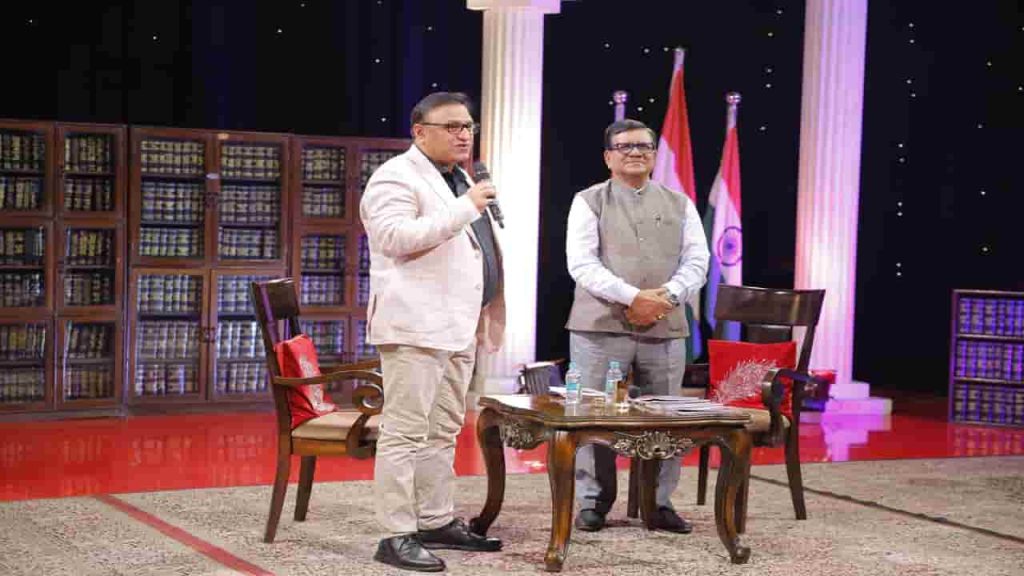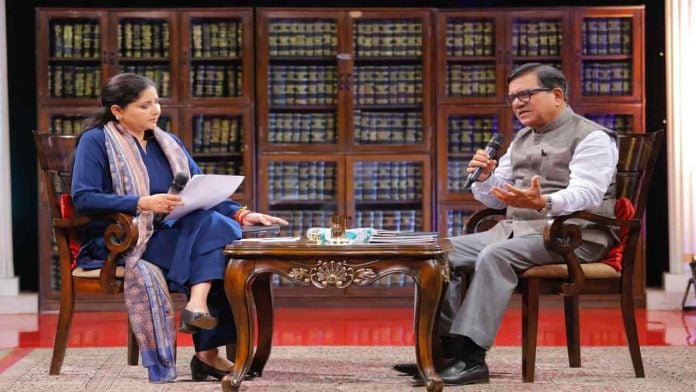Former Supreme Court judge Justice Shiva Kirti Singh said on Saturday that legislature should avoid making laws that violate the rights of citizens.
Speaking at a symposium organised by the India Legal Research Foundation, Justice Singh said this in reference to courts not allowing bail as a rule. “Bail is the rule, jail is the exception,” he said in reply to a question from APN News Editor-in-Chief Rajshri Rai.

Lower courts are violating rules since you cannot keep a person in jail when the trial is going on, the former Chief Justice of the Allahabad High Court said. He noted that rules are also being changed by the legislature and after making amendments, they continue to keep people in jail.
Speaking on the Challenges to Constitutional Morality, he said the violation of provisions guaranteed by the Constitution after taking oath on it is wrong. “The Prime Minister, The Chief Justice of India and the Election Commission take the oath of the Constitution and no one is above it,” Singh added.
On the difficulty of getting bail for economic offences while it is relatively easy for other crimes, Justice Singh wondered, “What are the compulsions of the government for making such laws on economic offences?”
Reacting to a question on the attempts to rewrite the Constitution, Singh said there is no danger to the Constitution, there are always exceptions for improvement and amendments. “Our Constitution is growing healthily,” he asserted. The basic concepts and the soul of the Constitution cannot be tinkered with, he emphasised.
The former SC judge noted that division in society in the name of religion, caste, or race is dangerous. He said the “divide and rule” policy is by governments has left society divided now.
In the context of reservations above 50 per cent, he said that would pose a problem since it would not serve the purpose for which it was being implemented. He said reservation is important and yet a sensitive issue.
On One Nation One Election, Singh said the concept was not wrong in terms of law but was obviously against federalism and he said it could be called an experiment. It has both good and bad effects, he said. If the concept is implemented, regional issues will be ignored and the larger national issues will dominate the political discourse.
“Our country is a federal structure and every state has different issues,” Justice Singh added.
Asked about the citizen’s right to protest in a democratic country, he said the Right to Assemble peacefully is guaranteed in the Constitution. He said sedition charges are constitutionally moral because when a person tries to destroy the nation, the provision is useful.
Singh said the government should not violate the basic human rights of people. There must be due process for any punishment, he said. In this case, the Court interferes and reminds the government of its limitations and advices it to be more reasonable.
On the Centre-state row over finances, the former SC judge said transparency is the only solution to address it. He said while giving grants to the states, the Centre must keep a record and make information available to be accessed by the people.
On criticism of the Collegium system, Justice Singh said it is with the Supreme Court and time will tell if it is right or wrong. The core issue, he said, was that every government considers itself superior to the Constitution. For the concentration of power, every government tries to put pressure on the judiciary and make sure there is a government representative in the top court, he added.
He said the Constitution clearly demarcates the separation of power between the Executive, the Legislature and the Judiciary and one should avoid interfering in the other’s domain.


